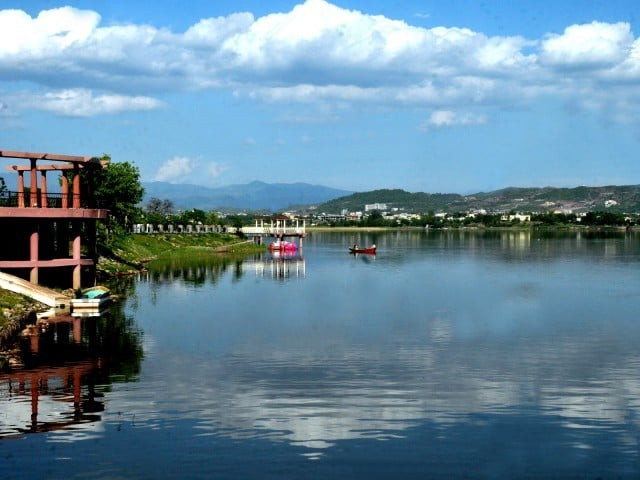Rawal Lake water unfit for human consumption: PCRWR
Solid waste, bacteria, microbiological contaminations found

Solid waste, bacteria, microbiological contaminations found. PHOTO: FILE
Water samples from the Rawal Lake were collected by the Pakistan Council for Research in Water Resources (PCRWR), a research organisation which works under the Ministry of Science and Technology.
It was determined that there were high levels of bacteria in the water, making it unfit to consume.
The PCRWR had collected water samples from the Rawal Lake around the time when hundreds of fish floated to the surface of the lake dead in July. The water samples were analysed at the National Water Quality Laboratory (NWQL).
The tests found that water in the lake was not fit for drinking owing to its turbidity and bacterial contamination.
However, water samples taken on the same day after treatment by the Water and Sanitation Agency (WASA), and analysed at the same laboratory, the PCRWR found that it was fit for human consumption, an official of PCRWR told APP.
“Raw [untreated] water always contains contaminants which need to be treated before distribution,” PCRWR spokesperson said.
She added that solid waste, bacteria, and microbiological contaminants were found in the lake’s water.
“But the water is being treated properly through purification plants which remove all impurities making it fit for consumption then distributed to the capital city,” the official added.
Despite that, the spokesperson urged that there was a need to educate the public not to dump solid waste in the streams and that water draining into the lake should be treated before it enters the Rawal lake so that its aquatic life remains healthy. Moreover, untreated water in the lake can impact the health of people who use the lake’s water for bathing or washing.
The Rawal Lake is the main source of water supply for Rawalpindi city and cantonments and for parts of Islamabad.
Three months ago, hundreds of fish turned up dead in the lake, giving rise to fears of mass poisoning. It prompted the authorities to shut off the water supply from the lake, lest it leads to fatalities among human settlements who drew water from it.
However, subsequent tests of water samples, including by the National Agricultural Research Centre (NARC) found that there was no toxic chemical present in the water.
“It is concluded that there was no abnormality present in the limnological parameters of the water,” the NARC said in a letter to the Islamabad Fisheries deputy director on July 11, days after dead fish floated the lake’s surface.
Last month, the top environmental agency, the Environmental Protection Agency (Pak-EPA) told a parliamentary body that the fish had died owing to low oxygen level in the lake’s water — the result of large quantities of garbage being dumped into the lake.
Published in The Express Tribune, October 13th, 2017.



















COMMENTS
Comments are moderated and generally will be posted if they are on-topic and not abusive.
For more information, please see our Comments FAQ